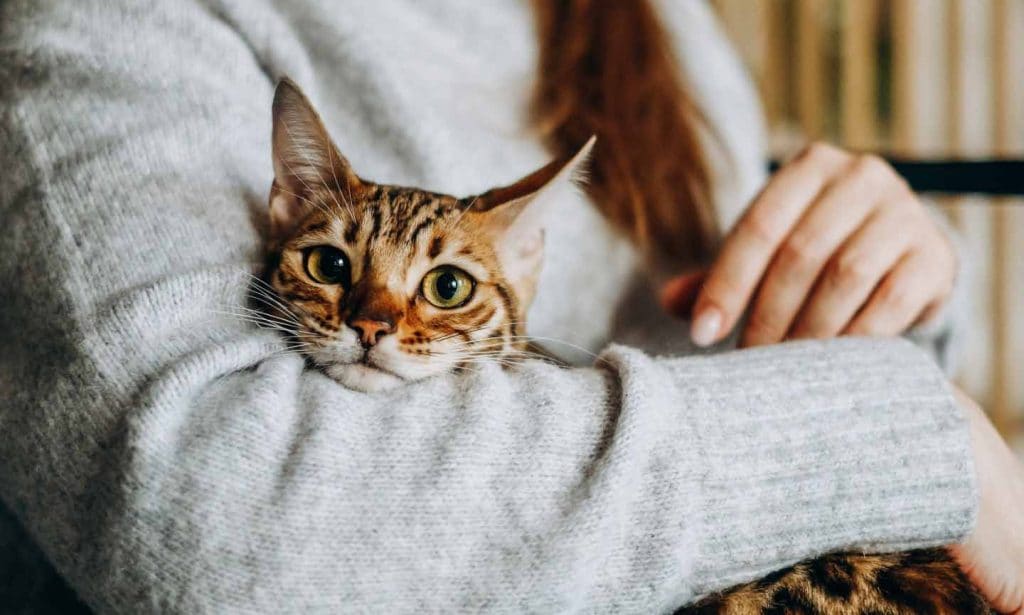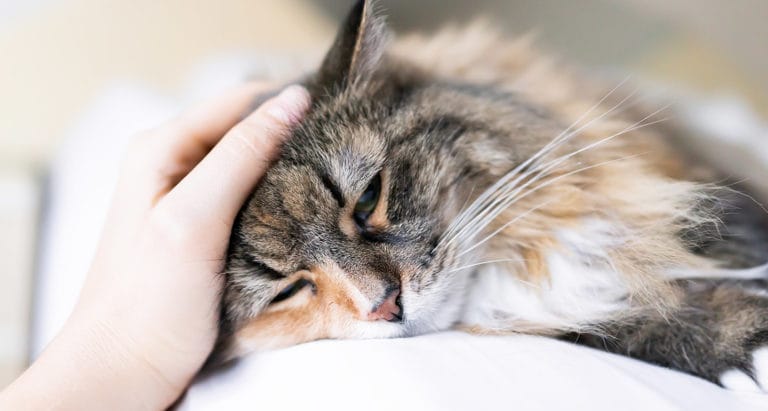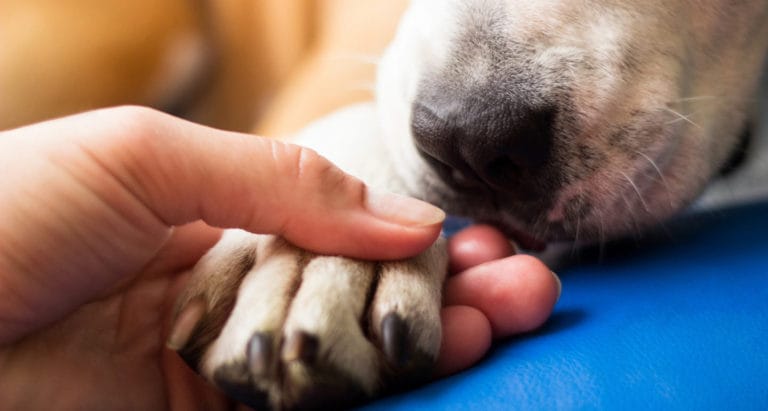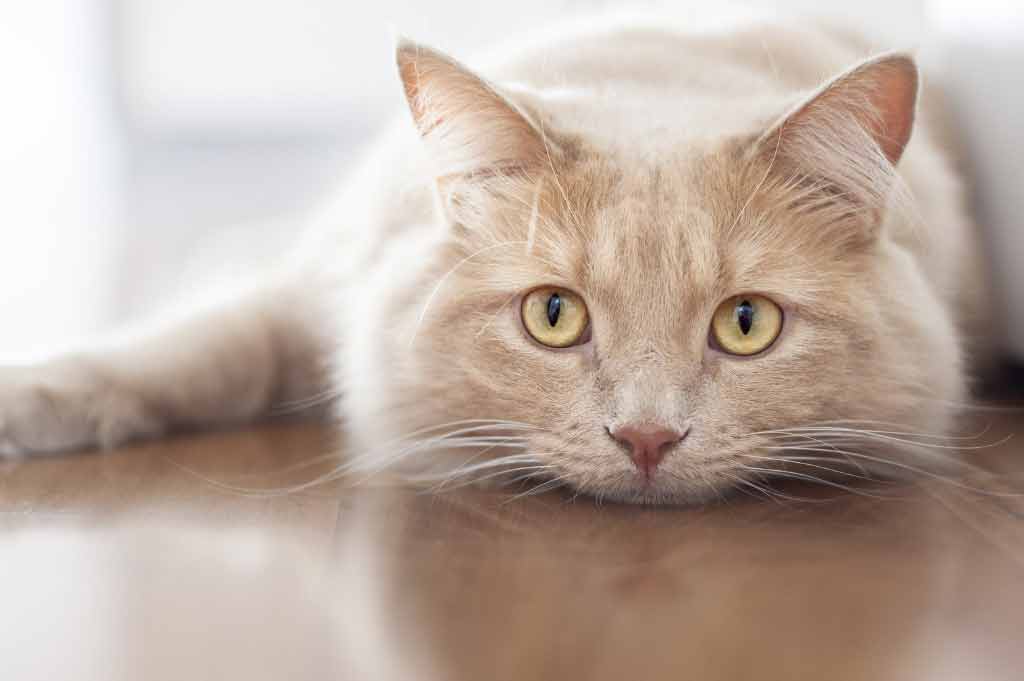
Do Cats Grieve?
Not all behaviorists agree when it comes to whether cats really experience grief or simply miss their companion pet, but one thing is clear: A change in cat behavior is very common after another pet in the home has died.
This can be true no matter what type of pet has passed—it may be another cat, a dog or other species. The bottom line: If your cat was bonded to that pet, they will show that they’re missing them in the way they act.
Those behavioral changes vary from cat to cat, says Dr. Marci L. Koski, a certified feline behavior and training consultant at Feline Behavior Solutions in Vancouver, Washington. “How they show great grief is really dependent on the individual cat. Just like humans grieve in different ways, cats grieve in different ways.”
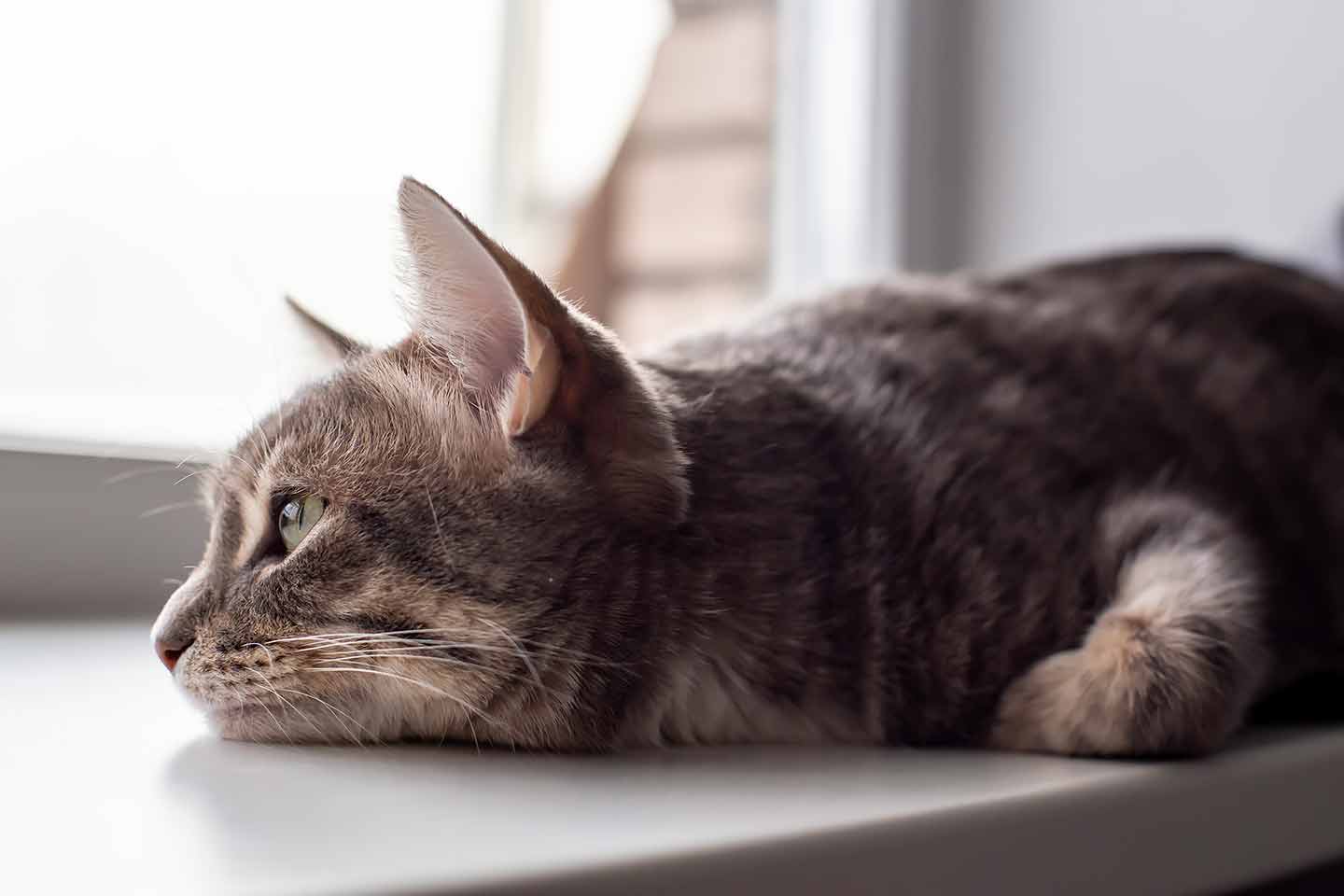
Signs of Grief in Cats
While signs of grief present differently for different animals, according to the Companion Animal Mourning Project, a study conducted by the American Society for the Prevention of Cruelty to Animals (ASPCA), cats typically experience:
- Changes in vocalization (meowing): About 70% of cats exhibited changes in vocal patterns. Some meowed more while others were quieter than they were prior to their loss of a companion.
- Decreased appetite: 46% of cats experienced a decreased appetite following a loss.
- Lethargy or insomnia: They may sleep more or may seem to have insomnia.
- Hiding more than usual or clinginess: Cats will either retreat entirely from their other loved ones or seek extra companionship from pet parents.
The study found that 65% of cats experienced four or more behavioral changes after the loss of a family pet, which indicates they were grieving—and that normal behavior would typically resume within six months.
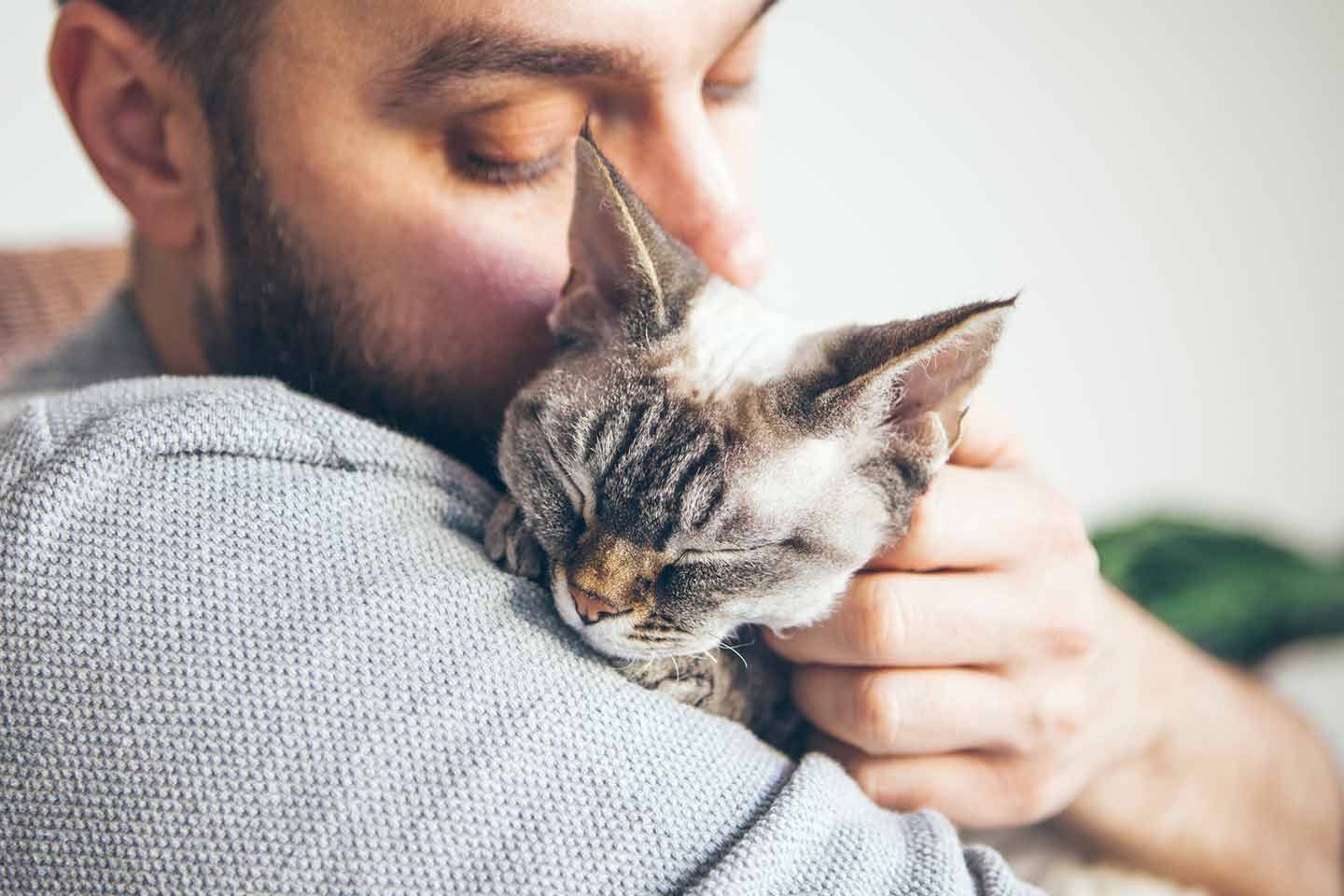
How to Help a Grieving Cat
“When it comes to cats, the important thing about grief is to minimize stress,” says Dr. Koski. Here are a few tips for doing just that:
- Give them attention: Start slow by petting or grooming them, and go from there. They are likely to be seeking a replacement companion for their furry friend.
- Engage them to play: Get them a new toy, a cat tree or a new cat house to hang out in to show them that change can be okay. Distractions like these can be especially helpful for getting cats into back to their regular sleep routine.
- Reward good behavior and ignore the bad: Cats tend to be more vocal and meow without any provocation while they’re grieving. Ignore this behavior and resist the temptation to give them treats to help them feel better—it’ll only teach them that meowing leads to treats. Instead, distract them with playtime and if they listen to your requests, praise them.
- Make sure they’re eating and drinking: “It can be really dangerous for a cat not to eat for several days,” Dr. Koski says. So, if your cat isn’t eating or drinking, contact your vet—there may be an appetite stimulant or other course of action you can try. You can also try to make their food more enticing by warming it up or adding a little bit of broth to increase the food’s aroma. Adding water bowls and fountains around your home is one of the ways you can get your cat to drink more water, too.
- Keep them on a regular schedule: Try to keep your cat’s meals and play sessions at the same time every day. “Predictability is good for reducing stress,” Dr. Koski says.
- Try comforting products: A heated cat bed or mat may be a comfort to your cat, reminding them of the warmth of their partner. Calming supplements and diffusers may also help ease the transition.
- Play music: When all else fails, try soothing music. A quick search on YouTube will provide numerous calming playlists for cats. Cats are more drawn to classical music, but smooth jazz will have a similar, soothing effect, Dr. Koski says.
- Consider medication: If your cat’s grief is prolonged, talk to your vet. They can test for any underlying health issues that may be causing your cat’s behavior, and can prescribe medication to soothe your cat’s mindset.
Should I Get a New Pet to Help My Cat?
Your cat is grieving, as is your family. Can a new pet help alleviate the pain?
For most cats, probably not, says Dr. Koski. “You want to let your cat go through that grieving process,” she explains. “Hopefully the cat will kind of get back to normal within a few weeks to maybe a few months.” Even ordinarily friendly cats may react differently to a new pet during a time of grief.
If your cat’s behavior has returned to normal, you can consider getting a new pet—but only if both you and your existing cat seem to want one. After all, Dr. Koski points out, your cat may not even want a new furry friend: “Maybe your cat is loving life being the center of your universe, you know?”
Remember to also ask yourself if you’re ready for the many responsibilities that come with an additional pet.
If you decide to get a new pet, look for one who has similar energy levels to your resident cat. “A lot of problems that I run into with my clients involve them having a senior cat who’s just lost a buddy, and they replace them with a new kitten,” Dr. Koski says. “Getting a more mature cat who has the same energy level and a similar personality is probably the best way to go.” Chewy Adoptions lets you search adoptable pets in your area by age, personality traits and more.
Find out more about when to bring home a new companion for a grieving cat.
Help for Grieving Pet Parents
Losing a pet is hard for pet parents too—but you don’t have to go through it alone. These resources can support you as you process your own loss:
Call: Pet Compassion Careline: 24/7 grief support at 1-855-245-8214
Read: “Good Grief: On Loving Pets Here and Hereafter” by E.B. Bartels
Visit: The Association for Pet Loss and Bereavement, a resource for mourning pet parents
Share:
